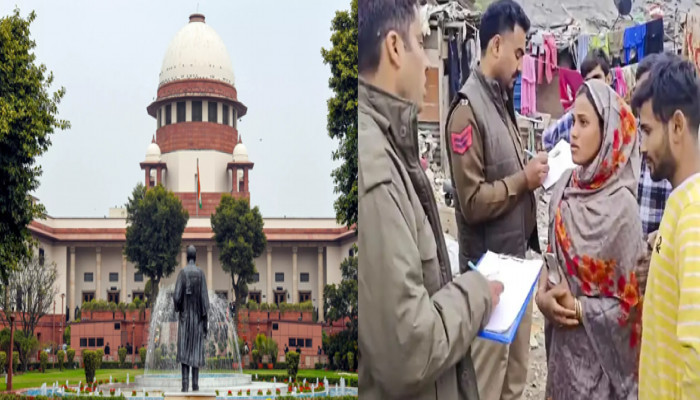Only Indian citizens have residency rights, Rohingya must leave: Supreme Court
- In Reports
- 05:04 PM, May 09, 2025
- Myind Staff
On Thursday, the Supreme Court declined to stop the possible deportation of illegal Rohingya Muslim migrants from Delhi. Senior lawyer Colin Gonsalves and advocate Prashant Bhushan had quickly filed petitions, arguing that the Rohingyas are at risk of genocide in Myanmar and that, as refugees, they have the right to remain in India.
A bench of Justices Surya Kant, Dipankar Datta, and N Kotiswar Singh stated that only Indian citizens have the right to live anywhere in India, and non-citizens will be dealt with under the Foreigners Act. They scheduled the hearing for the petitions on July 31. Solicitor General Tushar Mehta, along with advocate Kanu Agrawal, informed the bench that the Supreme Court had previously rejected the request to stop the deportation of Rohingya Muslims from Assam and Jammu & Kashmir. This decision followed concerns raised by the government about security and the potential national security risks posed by their presence in India.
Gonsalves and Bhushan argued that the Rohingyas were forced to leave their country because the Myanmar Army committed genocide against them. They added that the United Nations Human Rights Commission has officially registered them as refugees and issued them refugee cards. Therefore, they said, the Rohingyas have the right to stay and live in India. In response, the Solicitor General (SG) said that the Rohingyas are still considered foreigners. He pointed out that in a previous case related to Assam, the Supreme Court had decided not to make any comments about the situation in Myanmar. He also noted that the right to not be deported is linked to the right to live in India — a right that only Indian citizens have.
He told the court that all actions related to deporting illegal Rohingya migrants would follow the law, and explained that India does not consider them as refugees. He also pointed out that India has not signed the UN Refugee Convention, so the refugee status given to them by the UNHCR is questionable. The court said that Rohingya migrants do have the right to life under Article 21 of the Constitution. However, since they are foreigners, they will be handled according to the Foreigners Act.







Comments